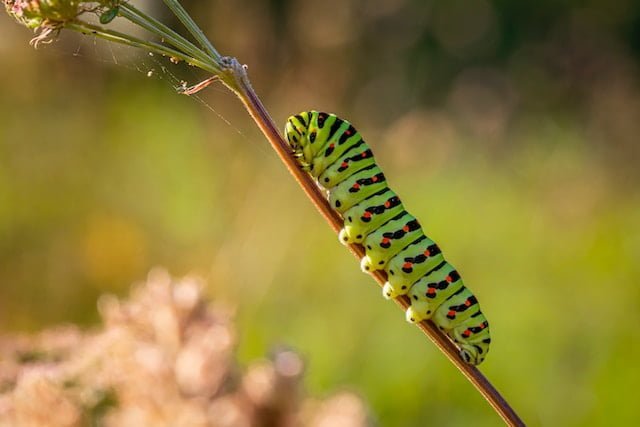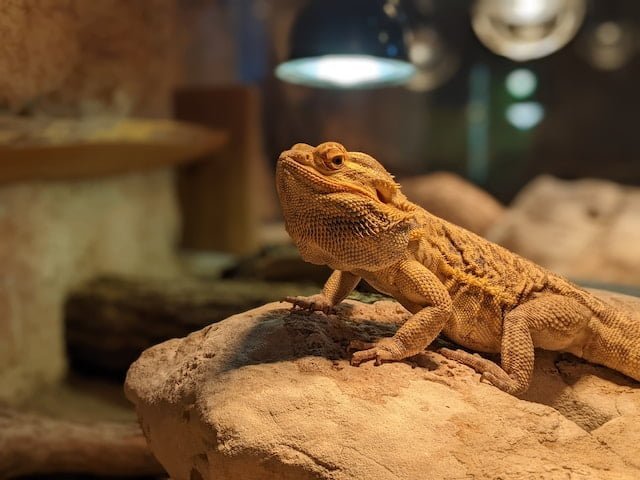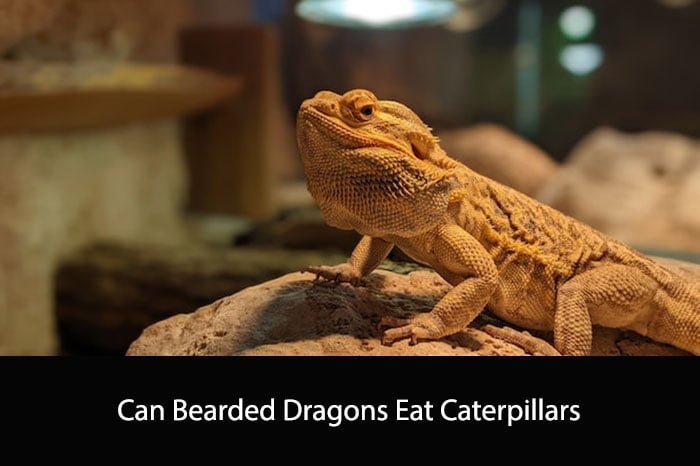When it comes to our scaly friends, bearded dragons, we want to make sure we’re giving them the best possible care, including a balanced and nutritious diet. One question that often arises is whether bearded dragons can munch on caterpillars. In this article, we’ll explore the fascinating world of bearded dragon diets and delve into the topic of whether these delightful creatures can enjoy a tasty caterpillar treat. So, let’s embark on this culinary adventure together!

Understanding Bearded Dragon Diet
To begin, let’s take a moment to understand the dietary needs of bearded dragons. These amazing reptiles are omnivores, meaning they eat a combination of plants and small animals. In the wild, their diet consists of leafy greens, vegetables, fruits, and insects. In captivity, we strive to replicate their natural diet to ensure they receive all the necessary nutrients for a healthy life.
Caterpillars as Potential Food for Bearded Dragons
Now, let’s dive into the main question: Can bearded dragons eat caterpillars? Well, the answer is both yes and no. While some caterpillars are safe for our scaly pals to consume, others can be harmful or even toxic. It all boils down to the type of caterpillar and its nutritional composition.
Caterpillars, during their larvae stage, can be a good source of nutrition for bearded dragons. They are packed with protein, which is essential for their growth and overall health. However, not all caterpillars are created equal. Some species possess defense mechanisms, such as toxins or irritating hairs, which can be harmful to bearded dragons.

Suitable Caterpillars for Bearded Dragons
To ensure the safety of our beloved pets, it’s crucial to identify caterpillars that are safe for consumption. Generally, caterpillars from non-toxic species, such as silkworms and hornworms, can be fed to bearded dragons. These caterpillars offer a good balance of nutrients, including protein and calcium, which are vital for the well-being of our scaly friends.
When it comes to choosing caterpillars, it’s essential to do your homework and learn about different species. This way, you can confidently select the right ones for your bearded dragon’s dietary needs. Always opt for captive-bred caterpillars or purchase them from reputable sources to ensure their safety.
Preparing Caterpillars for Bearded Dragons
Before serving caterpillars to your bearded dragon, it’s crucial to prepare them properly. This step helps eliminate potential toxins or parasites that could harm your scaly friend. Cleaning the caterpillars thoroughly is a must, and you should remove any uneaten food or waste from their enclosure. Additionally, ensure the caterpillars are of an appropriate size for your bearded dragon to prevent choking hazards.
Feeding Caterpillars to Bearded Dragons
Now that you have prepared the caterpillars, it’s time to feed them to your bearded dragon. Remember, moderation is key! While caterpillars can be a nutritious addition to their diet, they should not be the sole food source. Aim to provide a varied diet that includes a mix of leafy greens, vegetables, fruits, and other insects. Introduce caterpillars gradually and observe your bearded dragon’s response to ensure they tolerate them well.
Alternatives to Caterpillars
If you’re hesitant about feeding caterpillars to your bearded dragon or simply want to offer them some variety, there are alternative food options available. Crickets, mealworms, and dubia roaches are popular choices among bearded dragon owners. Each of these options provides a different set of nutrients and can be incorporated into their diet alongside other food sources. Remember, a diverse menu ensures your bearded dragon receives a well-rounded nutritional intake.

Conclusion
In conclusion, bearded dragons can indeed enjoy caterpillars as part of their diet, but it’s crucial to choose the right ones. Safe caterpillar species, like silkworms and hornworms, can provide valuable nutrients for your scaly friend. However, always exercise caution and ensure you’re sourcing caterpillars from reputable suppliers. Remember to maintain a balanced diet for your bearded dragon, incorporating a variety of foods to meet their nutritional needs. By doing so, you’ll help keep your scaly friend happy, healthy, and thriving!
So, next time you spot a caterpillar, don’t be too quick to dismiss it as a potential treat for your bearded dragon. With the right knowledge and proper precautions, you can add some caterpillar goodness to their menu and watch them munch away with delight!





